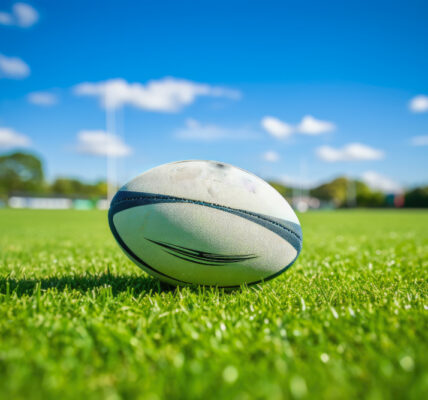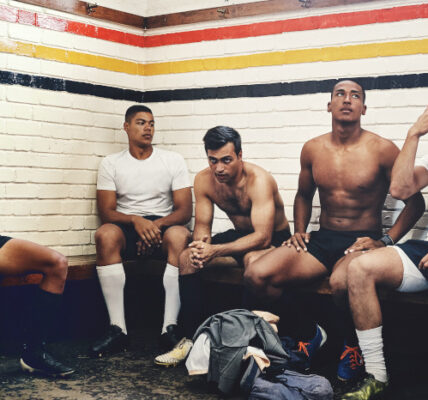The sea breeze off Durban doesn’t carry glory. It carries salt, grit, and the scent of something unfinished. That’s how it felt through most of the Sharks’ season in the United Rugby Championship. There was no trumpet blast to announce a turnaround, no viral clip to crown a player of the moment. Just a quiet, untelevised grind, a team learning how to rebuild under pressure, under scrutiny, and often underappreciated. And yet, they rose. Winning the South African Shield wasn’t supposed to happen. Making it to the semi-finals wasn’t in the script. But in a year where much of rugby’s spotlight swayed elsewhere, the Sharks quietly stitched together something enduring.
You wouldn’t have known it if you were only tracking headlines. Midway through the season, the Sharks weren’t contenders, they were context. Analysts spoke of coaching instability, inconsistency, and the weariness of travel. But something unspoken was building under the surface, and like all slow transformations, it wasn’t clean. It showed in tough, narrow wins at home, in away losses where the scoreline didn’t reflect the muscle being built. The players, many of whom had endured public criticism, kept showing up. The coaching staff didn’t chase gimmicks. They returned to rugby’s oldest discipline, clarity of purpose. Each match became a rehearsal in resilience.
Kings Park Stadium wasn’t always packed this season. But that made the noise more sincere. The supporters who showed up week after week didn’t need flash, they needed fight. And fight was what they got. From the Lower South Stand, banners barely holding their colour flapped beside those still carrying names from campaigns past. One could still spot the odd “Beast” poster, edges curled, its owner unmoved in loyalty. Those fans had seen false dawns before. They weren’t here for redemption stories, they were here to watch who bled for the jersey.
It’s hard to overstate what it means to win the SA Shield. Not in trophies or television stats, but in what it says about how this team held the line when no one was watching. It says they learned to win without fanfare. That when other teams had the luxury of being favourites, the Sharks had only themselves, their system, and the slow drag of coastal expectation. In many ways, it was Durban’s kind of season, hot, heavy, uneven, but somehow still electric.
 Leadership this year wasn’t loud. It came from players like Eben Etzebeth, who led with precision rather than theatrics. It came from rising names on the team sheet who stepped into bigger shoes without ceremony. The backline settled into rhythm. The forwards began to trust their shape. You could feel it, less panic under pressure, fewer rushed clearances, more control in the grind. These aren’t the things that make highlight reels. But they are the foundation of teams that last.
Leadership this year wasn’t loud. It came from players like Eben Etzebeth, who led with precision rather than theatrics. It came from rising names on the team sheet who stepped into bigger shoes without ceremony. The backline settled into rhythm. The forwards began to trust their shape. You could feel it, less panic under pressure, fewer rushed clearances, more control in the grind. These aren’t the things that make highlight reels. But they are the foundation of teams that last.
Off the field, the signs of resilience weren’t scripted either. At a local gym in Musgrave, a Sharks prop was spotted training alone on a Sunday. No cameras, no media scrum, just weights, sweat, and the quiet knowledge that if this team was going to matter again, it would have to earn everything. In townships and suburbs around Durban, young kids have started wearing Sharks kits again. Not because of one player or one win, but because the team, at last, feels like it stands for something more than marketing. It stands for Durban grit. For fighting uphill. For starting again.
This season wasn’t just about the professionals. Behind the scenes, academy players watched it unfold up close. Those on the fringe, on short-term contracts, playing club rugby to stay match-fit, saw that the distance between obscurity and contribution isn’t as wide as it feels. For them, this wasn’t just a rugby season. It was proof that the next chance might come quietly, and you better be ready when it does.
The rhythm of the game week in Durban still pulses like it always has. Friday night braais. Saturday matchday rituals. Post-game analysis in corner pubs where the volume on the TV is low, but the debates are loud. Somewhere in Morningside, someone lost a bet on a missed conversion and paid for the next round. At the Goldrush Casino in Springfield, a group of fans clustered around the bingo terminals, half-watching replays, half-retelling tries. That’s how rugby lives in Durban. Not in stat sheets or studio breakdowns, but in the telling and retelling among people who feel the win in their chest before they ever feel it in their throat.
If there’s one thing this Sharks season proves, it’s that success doesn’t always need spectacle. It needs patience. It needs honesty, within the squad, from the coaching bench, and between fans. It needs losses that teach more than wins. And when it comes, it won’t always be carried on shoulders. Sometimes, it walks out of the tunnel head down, quiet, bruised, but still moving forward.
Durban is used to storms. It doesn’t scare easy. And neither do the Sharks anymore. The season might be over, but the noise hasn’t stopped. It’s just coming from deeper waters now. The kind of noise that doesn’t need to shout to be heard. The kind of noise that says, we’re not done. Not yet.
And if you’re still awake long after full-time, maybe somewhere between those stories being shared and that last game replayed, you’ll realise something, the Sharks didn’t just rise. They remembered who they were. And Durban did too.




